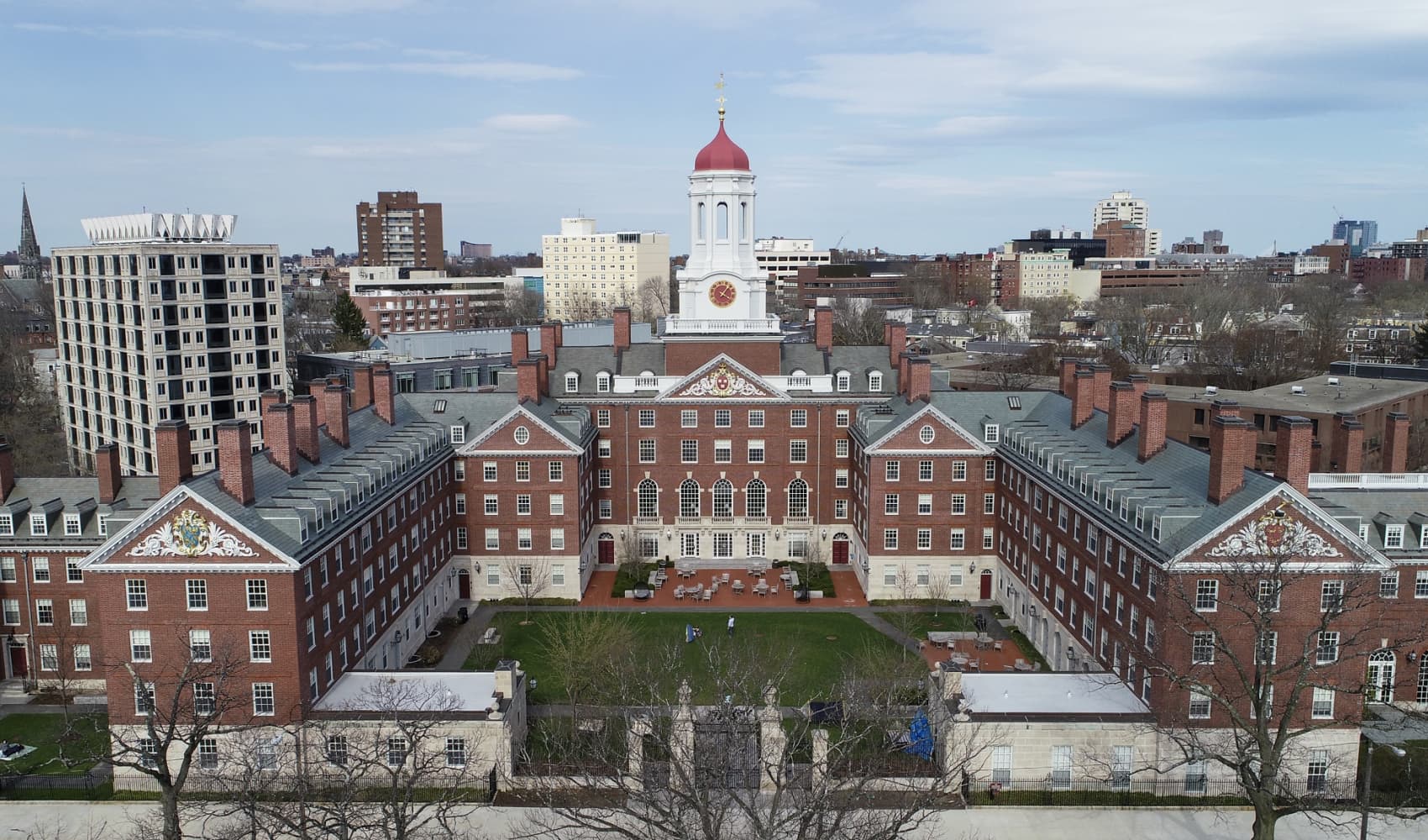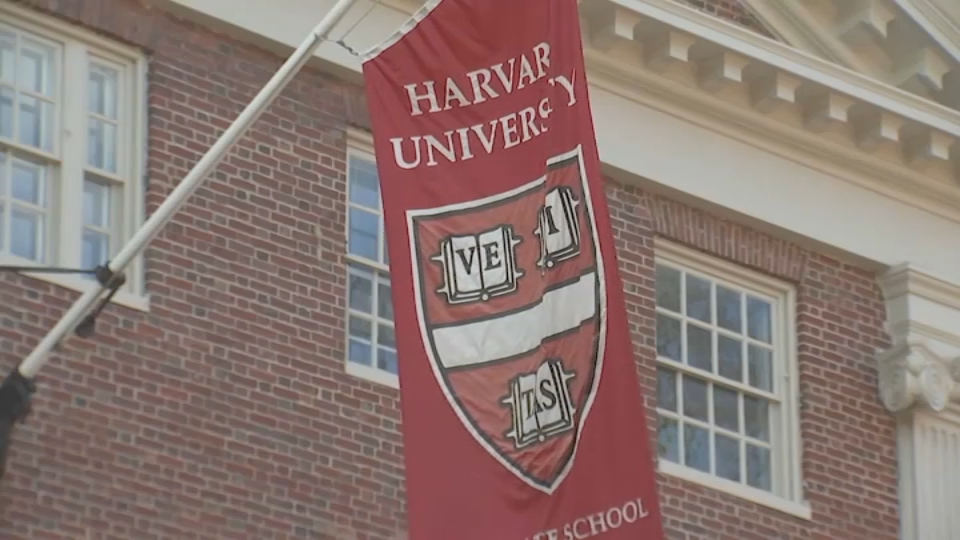Harvard vs. Trump: $2.2B Freeze Ignites Legal War
Harvard Battles Trump: $2.2 Billion Funding Freeze Sparks Legal War
Introduction: A Clash of Titans
Imagine a heavyweight boxing match, but instead of gloves and a ring, we have legal briefs and billions of dollars. That's essentially what's unfolding between Harvard University and the Trump administration. You heard right: Harvard, the ivory tower of academia, is suing the government. Why? Because the Trump administration froze a staggering $2.2 billion in grants after Harvard refused to bow to demands perceived as infringing on academic freedom. This isn't just about money; it's about principles, power, and the very soul of higher education in America.
The Initial Spark: Demands and Defiance
The conflict began with a letter from the Trump administration outlining a series of demands. These weren't gentle suggestions; they were directives that Harvard felt crossed the line. The administration sought broad reforms within the university, particularly focusing on leadership, admissions policies, and even the perspectives of diversity on campus. Let’s break down what exactly was demanded.
Reforms at Harvard: A Government Overreach?
The specifics of the requested reforms are crucial here. The administration, in essence, wanted to reshape aspects of Harvard’s governance and academic focus. Was this a legitimate concern, or was it an overreach of government power into the affairs of a private institution? That’s the billion-dollar question, literally.
Diversity Under Scrutiny: Auditing Viewpoints
One of the most contentious demands was for Harvard to “audit views of diversity on campus.” What does that even mean? Is the government trying to dictate what constitutes acceptable diversity of thought? This raises serious questions about academic freedom and the right of universities to foster diverse viewpoints, even if they differ from the administration's own.
Student Clubs in the Crosshairs: Freedom of Association?
The demand to stop recognizing certain student clubs adds another layer of complexity. Who decides which clubs are acceptable and which aren't? Is this a veiled attempt to stifle student activism or curtail specific viewpoints deemed unfavorable by the administration?
Harvard's Stand: Principles Over Funding
Faced with these demands, Harvard President Alan Garber made a pivotal decision: he refused to comply. Garber stated the university would not bend to what it considered inappropriate government intervention. This was a bold move, putting the institution's principles above a substantial sum of money. But what were the potential consequences?
The Freeze: A Swift Retaliation
The response from the Trump administration was swift and decisive. Hours after Garber's announcement, the government froze the $2.2 billion in federal funding. Talk about a power play! This sent a clear message: defy the administration, and face the financial consequences. But was this a legal and justified action?
A Rational Connection? The Core of the Lawsuit
Harvard's lawsuit hinges on the argument that there is no rational connection between the administration's concerns and the research projects affected by the funding freeze. The lawsuit states, "The Government has not — and cannot — identify any rational connection between antisemitism concerns and the medical, scientific, technological, and other research it has frozen that aims to save American lives, foster American success, preserve...". In other words, how does a disagreement about campus diversity justify cutting off funding for cancer research or other vital projects?
The Stakes: What's at Risk?
This legal battle has implications far beyond Harvard’s campus. It raises fundamental questions about the relationship between the government and universities, the limits of executive power, and the importance of academic freedom.
Impact on Research: Stifling Innovation
The immediate impact of the funding freeze is on research projects. These grants support vital work in medicine, science, and technology. Cutting off funding could delay breakthroughs, hinder progress, and ultimately harm the public good. Imagine a potential cure for a disease being delayed because of a political dispute.
Academic Freedom Under Threat: A Chilling Effect
The long-term consequences could be even more significant. If the government can dictate universities’ policies by threatening to withhold funding, it could create a chilling effect on academic freedom. Universities may become hesitant to pursue research or express viewpoints that could be perceived as controversial or unfavorable to the administration.
Precedent Setting: Defining Government Overreach
This case could set a crucial precedent. If Harvard wins, it will reaffirm the importance of academic independence and limit the government's ability to interfere in university affairs. If the Trump administration prevails, it could embolden future administrations to exert greater control over higher education. So, what will the courts decide?
Legal Arguments: David vs. Goliath?
Harvard's legal team is likely to argue that the administration's actions are arbitrary, capricious, and violate the university's constitutional rights. They'll likely emphasize the lack of a rational connection between the stated concerns and the funding freeze.
The Administration's Defense: National Security?
The Trump administration, on the other hand, may argue that its actions are justified by national security concerns or the need to ensure that taxpayer dollars are being used responsibly. They might also point to instances of perceived bias or discrimination on campus as evidence of the need for reform.
Public Opinion: Divided Loyalties
Public opinion on this case is likely to be divided. Some will applaud Harvard for standing up to government overreach and defending academic freedom. Others may see the university as an elitist institution that is out of touch with the concerns of ordinary Americans.
The Political Divide: Echo Chambers and Polarization
The political divide in America is likely to influence perceptions of this case. Supporters of the Trump administration may see Harvard as a liberal bastion that needs to be brought to heel, while critics of the administration may view this as another example of its authoritarian tendencies.
The Future: What's Next?
The outcome of this legal battle is uncertain, but one thing is clear: it will have a profound impact on the future of higher education in America. Will universities be able to maintain their independence, or will they become increasingly subject to government control?
The Court's Decision: A Defining Moment
Ultimately, the court's decision will determine the balance of power between the government and universities. Will it uphold the principles of academic freedom, or will it allow the government to exert greater control over higher education? Only time will tell.
Conclusion: A Battle for the Soul of Higher Education
The Harvard v. Trump administration case is far more than just a dispute over money. It's a battle for the soul of higher education in America. It raises fundamental questions about the limits of government power, the importance of academic freedom, and the role of universities in a democratic society. The outcome will have lasting consequences for institutions across the nation, shaping the landscape of research, innovation, and intellectual inquiry for years to come. So, stay tuned, because this legal drama is just getting started.
Frequently Asked Questions (FAQ)
Here are some frequently asked questions about the Harvard v. Trump administration case:
- Why did the Trump administration freeze Harvard's funding?
The Trump administration froze the funding after Harvard refused to comply with demands to reform its governance, admissions policies, and diversity initiatives. The administration sought changes it believed were necessary, while Harvard viewed the demands as an infringement on academic freedom.
- What specific demands did the Trump administration make?
The demands included broad government and leadership reforms, changes to admissions policies, auditing of diversity viewpoints on campus, and ceasing recognition of certain student clubs.
- What is Harvard's argument in the lawsuit?
Harvard argues that there's no rational connection between the administration's concerns about antisemitism or other issues and the medical, scientific, and technological research projects affected by the funding freeze. They believe the freeze is arbitrary and capricious.
- What are the potential consequences of the funding freeze for Harvard?
The funding freeze could delay or halt crucial research projects, potentially stifling innovation and impacting areas like medicine, science, and technology. It also raises concerns about academic freedom and the university's ability to operate independently.
- What is the broader significance of this legal battle?
This case could set a precedent for the relationship between the government and universities, defining the limits of executive power and the importance of academic freedom. The outcome will likely influence the way universities operate and interact with the government in the future.

